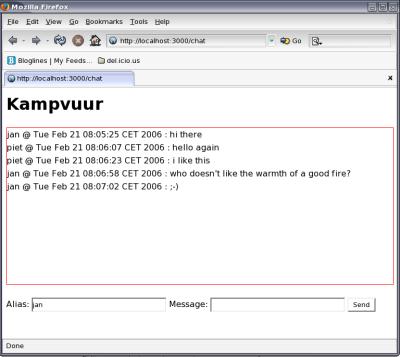
Sherry has never been my favorite drink. Not only does it have unpleasant connotations: of England, the 1950s, Agatha Christie, brown, dull, mouldy; or worse, in Holland: where in the 1970s desperate housewives got drunk on cheap supermarket sherry — but also I just never liked the taste of it very much.
The last time M. and I bought a bottle of sherry was to cook Delia Smith’s recipe of chicken in sherry (a chopped up chicken braised for 45 minutes in half a liter of sherry and sherry vinegar, with lots of whole shallots and garlics and tarragon). Per Delia’s instructions we asked the shopkeeper for amontillado sherry. The shopkeeper looked at us in awe; it seemed we had instantly become connoisseurs to him. With great care he unlocked a special cabinet behind him and took a dusty bottle out of it which he put on the counter. I was expecting an equally special price, so I was surprised when it only cost about 15 guilders (8 dollars), which only confirmed our prejudice that sherry is nothing but a cheap way to get drunk. We didn’t dare to break the spell and tell him we were going to use it for cooking. Of course we did taste it before pouring it into the pan, but fortunately it tasted a lot better after 45 minutes of cooking with the tarragon.
So I wasn’t too eager when my dad, the last time we visited him, suggested we drink a glass of sherry with the Coulommiers cheese and goat’s Brie we were about to eat. “No, no, this is special, you’ll like this,” he said; and I know by now I should trust him in these matters. He’s been cooking most of his life, professionally for part of it, and is currently working as a culinary consultant. He taught me long ago to always taste everything, before deciding if I like it or not. And so I trusted him and agreed to try a glass. With great care he brought a dusty bottle out of his wine cellar and put it on the table, just slightly hesitating before opening it, showing that it really was a special bottle. I tasted. He watched me closely. This was not sherry! It had all the sweet and subtle taste of sherry, but without any of the sharp vileness of alcohol that I was afraid to find. It was served cold and fresh, and tasted more of an aromatic dessert wine; a wonderful combination with the salty cheeses. He told me the sherry is made by constantly mixing in older sherry through an elaborative system, the details of which I cannot remember very clearly for some reason. The end result is that every bottle of this sherry contains a tiny amount of very, very old sherry (up to 60 years, the average age is 25 years).
After he saw I really liked it, my dad brought up another bottle as a parting gift (we were leaving the next morning). That bottle is now safely tucked away in our own little wine rack (they don’t build cellars anymore), waiting to be opened, for a special occasion, or just because we feel like tasting that exquisite flavor again. We won’t be cooking chicken in it for sure; we’ll buy a bottle of real sherry for that.


